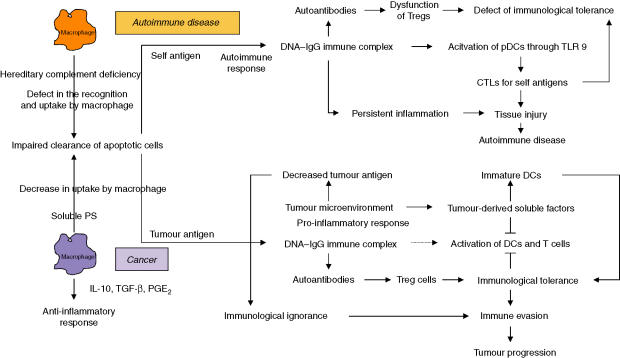Figure 2.
Different pathways for dysregulated immune responses in cancer and autoimmune disease initiated by impaired clearance of apoptotic cells by macrophages. In autoimmune disease, defective apoptotic cell clearance causes accumulation of DNA–IgG immune complexes, which provoke an immune response through Toll-like receptor 9 (TLR9), leading to tissue injury. Unfortunately, the Treg cells are decreased and dysregulated. In contrast, an impaired clearance of apoptotic cells in cancer produces autoantibodies, which increase the regulatory T (Treg) cells and inhibit T-cell activation, causing immunological tolerance. The immunological tolerance is produced by tumour-derived soluble factors (TDSFs) and immature dendritic cells (iDCs), which inhibit DC and T-cell activation, and exclusively inhibit the DNA–IgG immune complex-induced pro-inflammatory responses needed for an immune response. Immunological ignorance is produced by reduced levels of tumour antigens.

